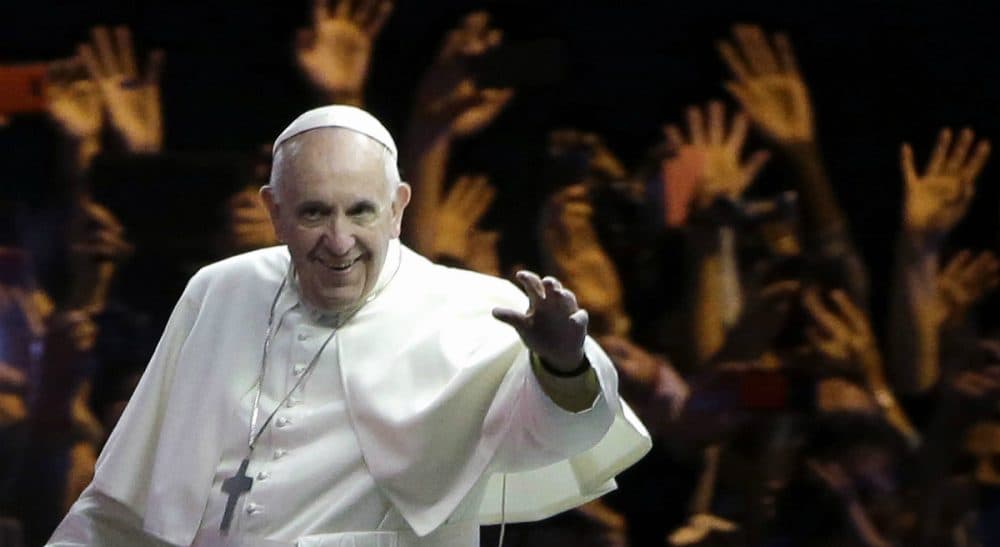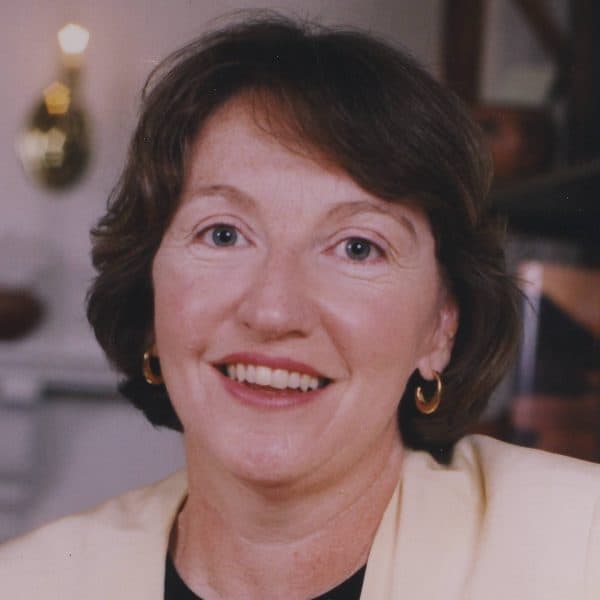Advertisement
The Media's Embarrassingly Indulgent Coverage Of The Catholic Church

One could hardly tell from the media’s preoccupation with all things papal that Islam, not Catholicism, is the fastest growing religion in the world.
In the 19 months since Cardinal Jorge Mario Bergoglio of Argentina became Pope Francis, an enchanted media has been dispensing a steady diet of “news” from Vatican City about everything from the pontiff’s preferred footwear to the birthday breakfast he shared with a few homeless men.
That the humble Jesuit from Buenos Aires has captured the public imagination is certain. Witness the throngs who greeted him in Washington, Philadelphia and New York during his U.S. visit last month. But the journalistic excess — more than 4,000 mentions in The New York Times alone — is matched by the breathless quality of the coverage.
One could hardly tell from the media’s preoccupation with all things papal that Islam, not Catholicism, is the fastest growing religion in the world.
The latest installment came over the weekend at the conclusion of a three-week meeting of the world’s Roman Catholic bishops at the Vatican to discuss family issues and Catholic doctrine. The final document produced by the synod was so ambiguous on so many points that it was hailed as a victory by conservative and liberal Catholics alike. The bishops proposed no doctrinal changes. It is still a sin to have sex outside of marriage. Homosexuals should be treated with respect but they are still “intrinsically disordered” and their legal unions are in no way comparable to heterosexual marriage.
That the bishops could not decide whether divorced Catholics should be offered communion is worth noting, I suppose, even though plenty of divorced Catholics are already at the altar rail in defiance of the current ban. But shouldn’t such intense media coverage be reserved for real changes in policy, for actual news?
The internal debates of the Catholic Church might be fascinating to Catholics, but why are they assumed to be of compelling interest to everyone else? Yes, there are 1.2 billion Catholics in the world, but there are also 1.1 billion people without any religious affiliation.
Why is Catholicism’s longstanding opposition to gay marriage always big news but the embrace of gay couples by the Conservative and Reforms Jewish movements, the United Church of Christ, the Episcopal Church, the Presbyterians, the Quakers and the Unitarian Universalists and other faiths barely merits a mention?
If it is front-page news when bishops agree to disagree — and it was in The New York Times — how will editors treat actual change, if it ever occurs, in the Catholic Church?
The Boston Globe has cornered the market on papal pandering. It devotes an entire website to what it calls “all things Catholic,” even as it undergoes another round of layoffs in its newsroom this month. The website, called Crux, describes its mission as covering the “worldwide institution of the Catholic Church, from the papacy to the hierarchy to local dioceses. We’ll explore the theology, doctrine, liturgy, practices, and traditions of Catholicism in the context of the life of modern-day Catholics, giving full voice to disagreements and challenges facing the Church and Catholics.”
If it is front-page news when bishops agree to disagree -- and it was in The New York Times -- how will editors treat actual change, if it ever occurs, in the Catholic Church?
In its Question Corner this week, a reader asks, “What should I say when defending Mary Magdalene?”
What?
At a time when a majority of Americans admit to knowing next to nothing about Islam, shouldn’t the secular media be filling that information gap? At a time when anti-Muslim sentiment fuels hate crimes across the U.S., wouldn’t readers and viewers be better served by more reporting about a religion practiced by 23 percent of the world’s population than another feature on the new, diminutive popemobile? At a time when ISIS fighters distort the Koran for their own murderous aims, wouldn’t an examination of their religious claims bring more clarity to what is happening in Syria and Iraq?
Maybe. But Pope Francis plans to visit Africa before the end of the year. Cue the press corps.
